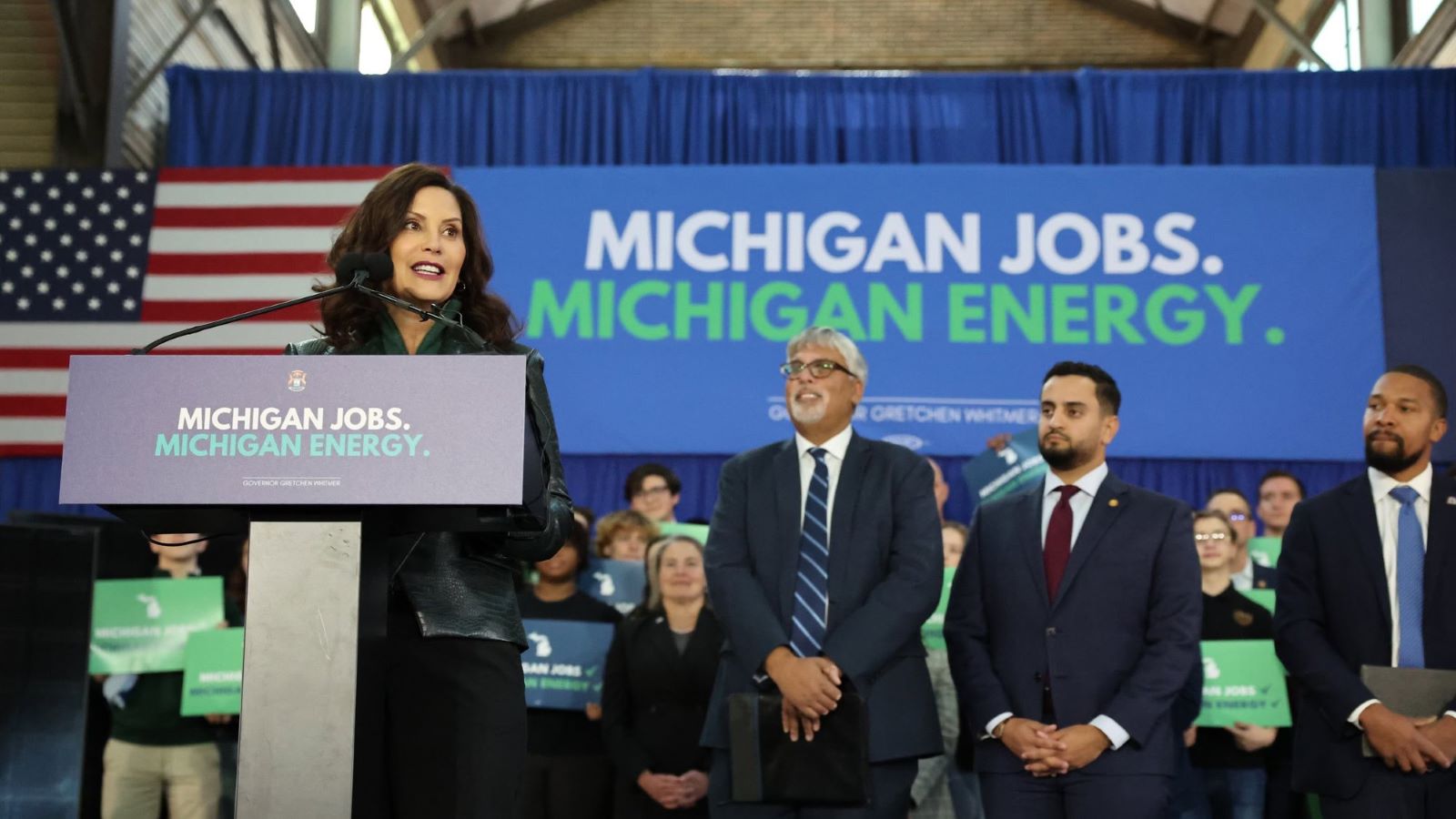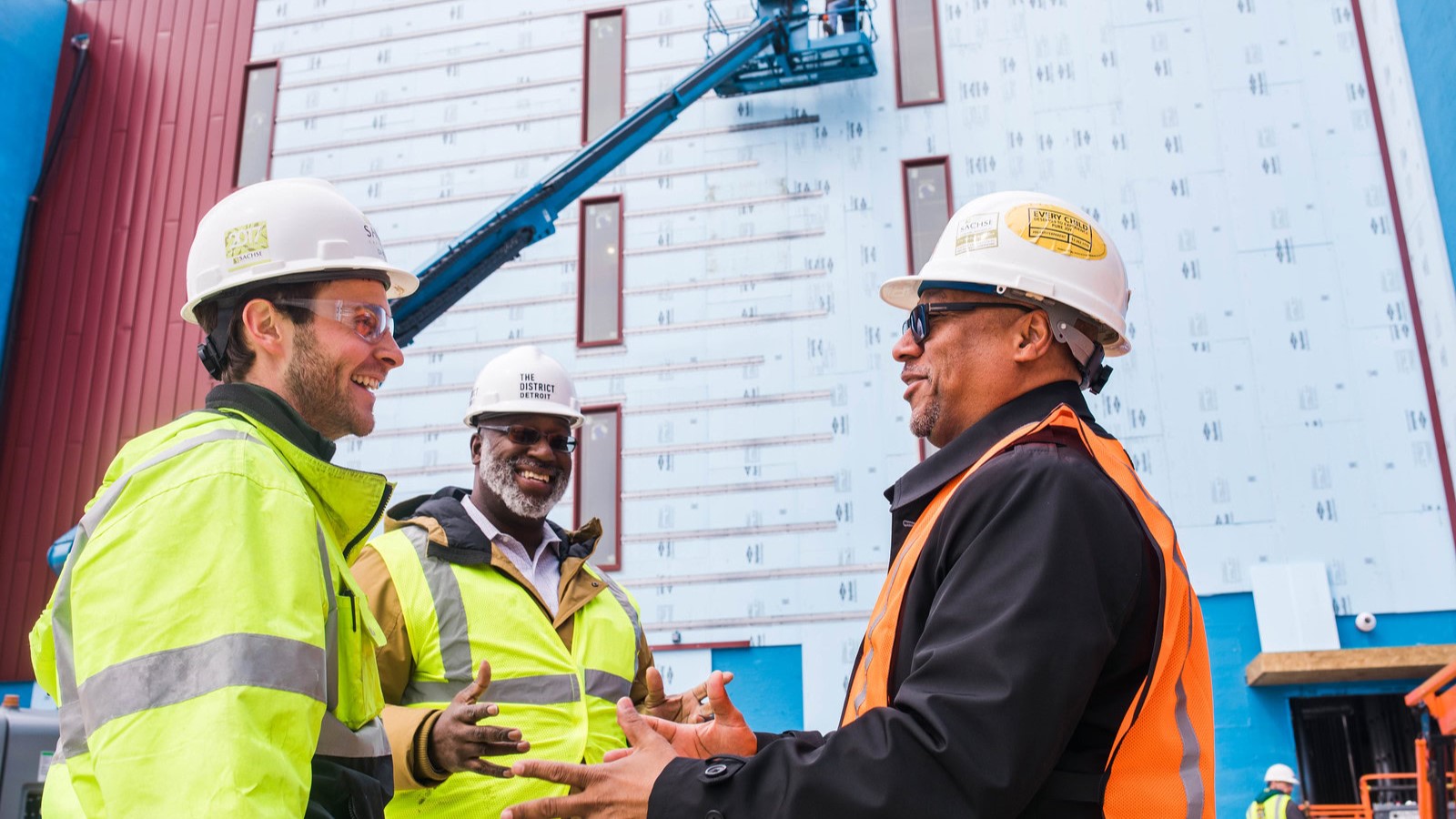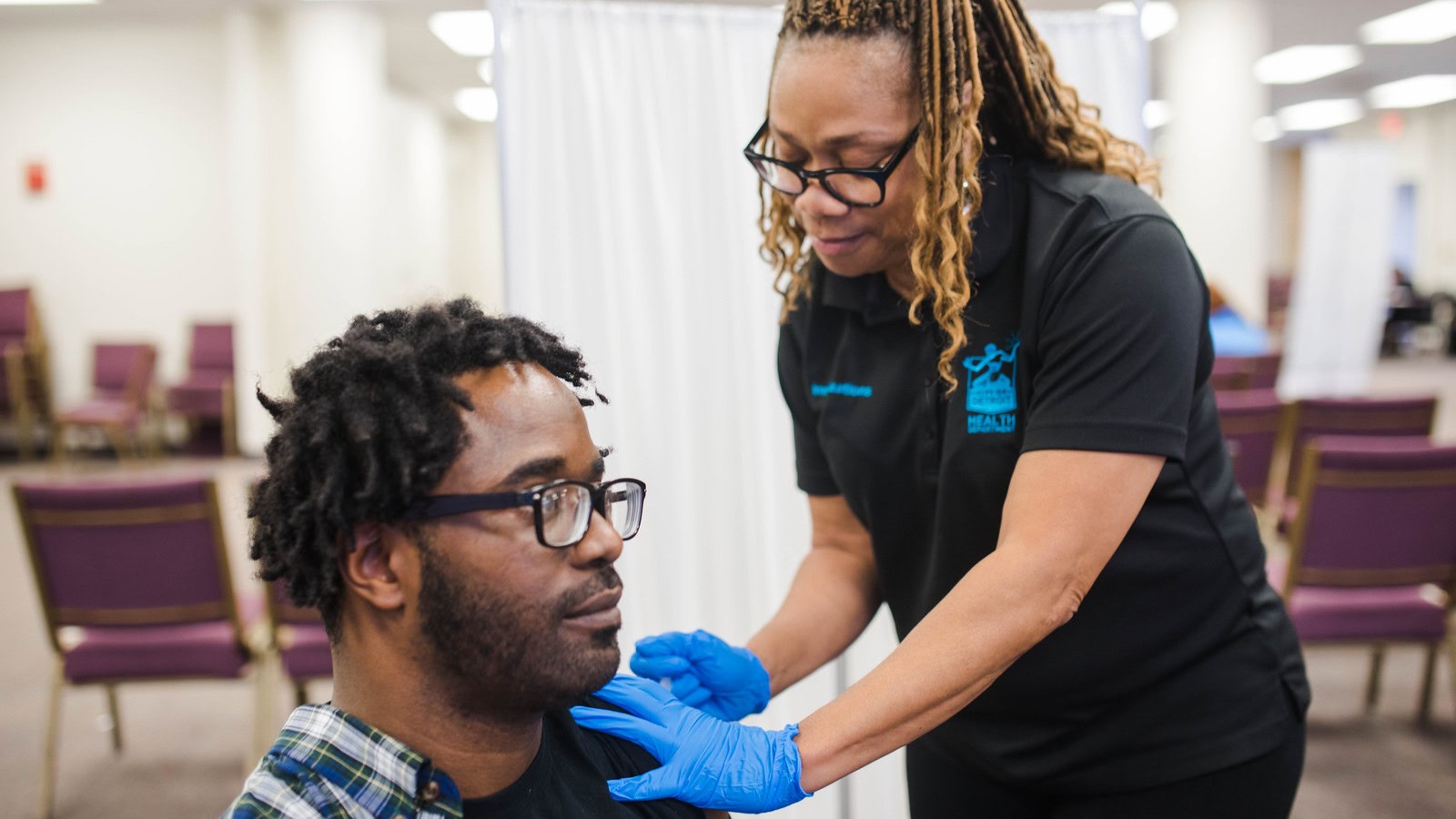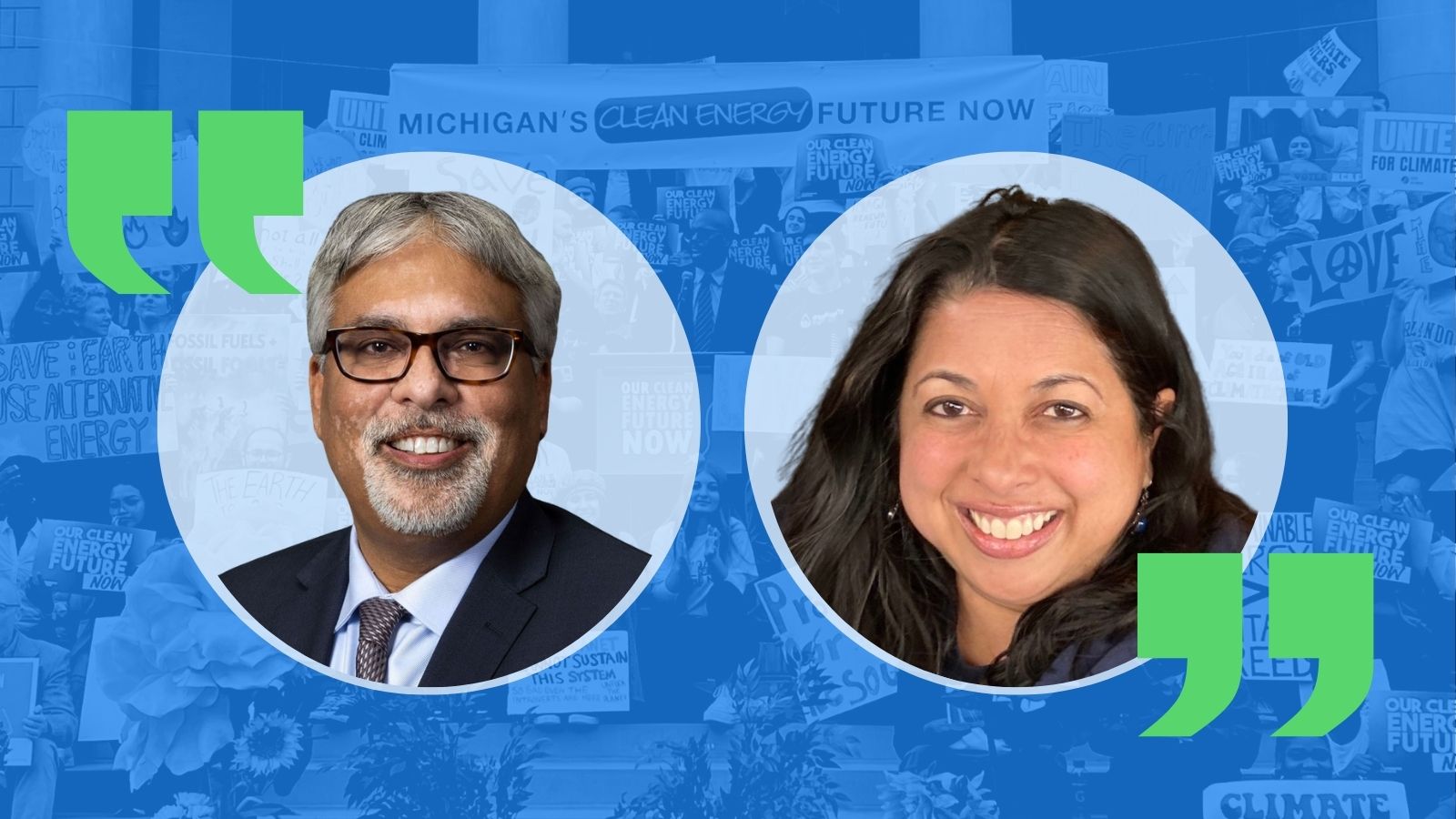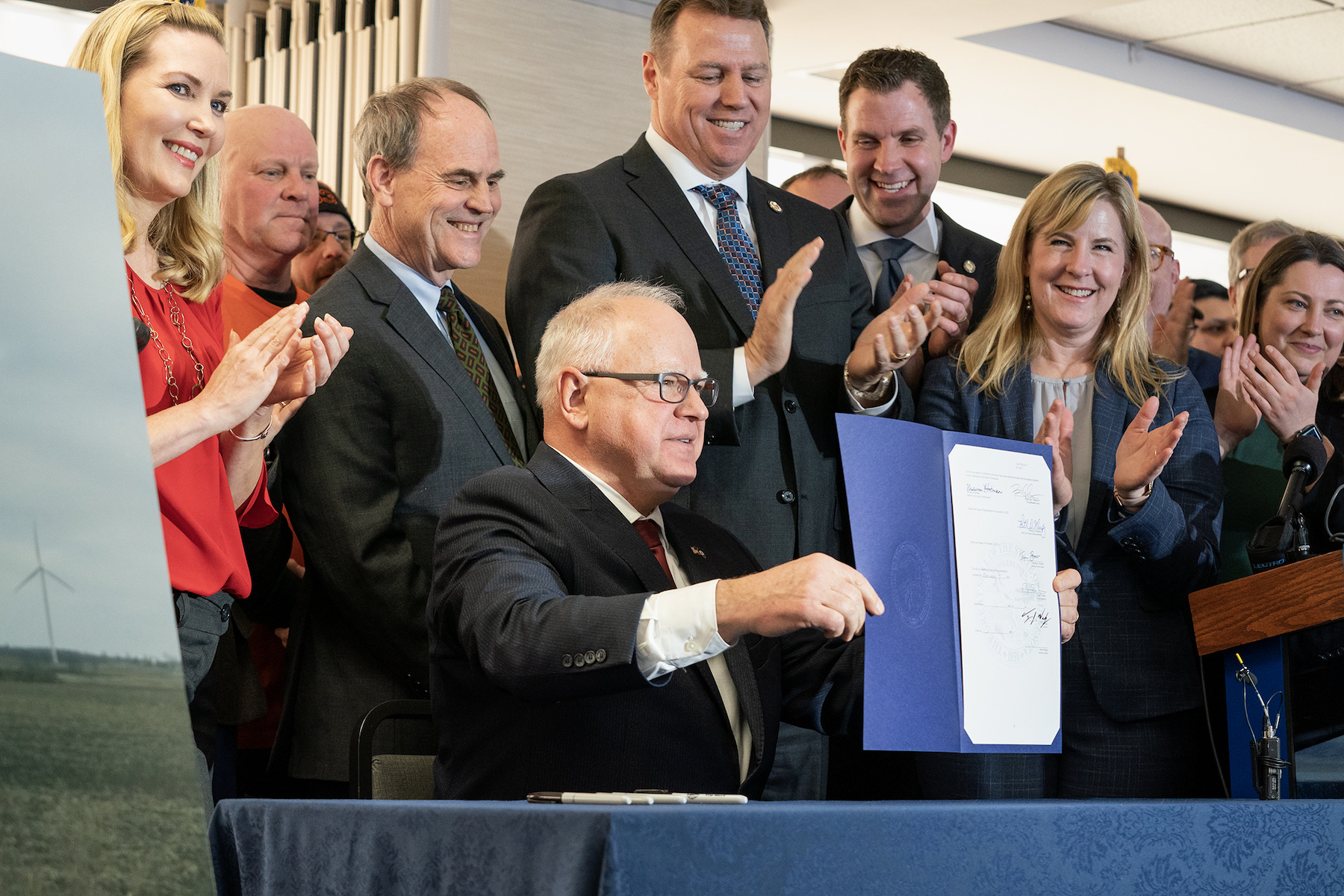Lower monthly energy costs.
The freedom to live without pollution.
More good-paying jobs and a growing middle class.
This is what Michigan’s future looks like—the future of what all of America could look like—and we can’t go back. Michigan’s economy is surging, supercharged by the Biden-Harris administration’s Inflation Reduction Act (IRA) and a suite of nation-leading clean energy bills signed by Governor Gretchen Whitmer last November. Thanks to this one-two punch of ambitious climate action, Michigan has more clean energy projects than any other state and is ranked fourth in the country for new clean energy jobs. Clean energy businesses, which are creating jobs and growing the state’s workforce, are the first to say it: They are planting their stakes in Michigan, largely thanks to strong climate policies.
With this steady stream of investment pouring into their state, Michiganders have been enjoying the benefits of strong federal and state climate policies, and they don’t want to see this progress taken away from them. Fortunately, they don’t have to. New modeling shows the best is yet to come, as long as we keep these clean energy policies in place. And that’s only possible if we keep climate deniers out of the Oval Office and elect a Harris-Walz ticket this fall.
New Climate Policy Modeling: 4 Benefits Michiganders Can Expect
The latest analysis from 5 Lakes Energy (PDF) shows that the state’s climate legislation package, in tandem with the IRA, goes way beyond cutting climate pollution. It will create economy-wide change by saving Michigan families hundreds of dollars in energy bills, bringing more clean energy jobs and investments into the state, and protecting communities from the harmful effects of pollution.
